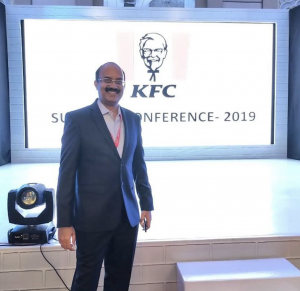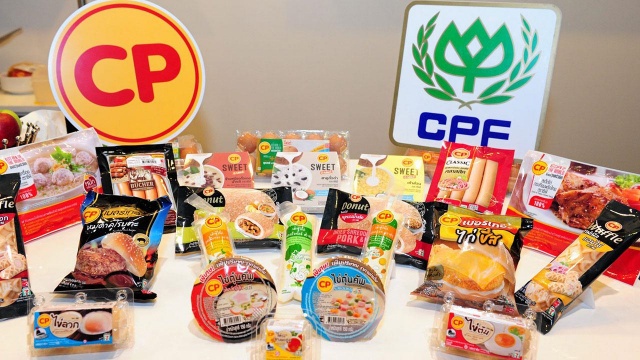Bangkok-headquartered CP Foods (CPF) announced on December 24 that it aims to expand in 17 overseas markets where the company is currently operating – especially in China, Vietnam, India, the Philippines, Russia and the United States. In recent years it has invested significantly in purchasing valued-added food companies abroad, acquiring name brands and manufacturing platforms in the USA, UK, Continental Europe and elsewhere.
The strategy is in line with a policy set by Dhanin Chearavanont, senior chairman of Charoen Pokphand Group (CP), to create continuous business expansion despite slow economic growth in Thailand. The goal is to boost sales outside of Thailand and exports to reach 80% of total sales within the next five years.The diversified agri-business, the largest of its kind in the the Asia-Pacific region, is a major producer of livestock, poultry products, fish and farm-raised shrimp. Approximately 17% of all revenues come from sales of prepared foods and ready meals. The majority of its receipts are earned in the feed sector (42%) and farming segment (41%).
Better-than-Expected Q3 Earnings
Last month CPF reported Bt6,062 million in earnings for the third quarter, a rise of 23% over the same period in 2018 despite lower revenues. Q3 receipts totaled Bt132,597 million, a decline of 6%. Nevertheless, excluding impacts from the strengthening Thai baht as well as the adjustment of financial reporting standards (TFRS), sales revenue would have increased by 8% on the year.
Prasit Boondoungprasert, chief executive officer of CPF, attributed the drop in sales to the stronger Thai currency as well as changes in TFRS. In the quarter, overseas businesses accounted for 67% of total revenues. The remainder was contributed by domestic sales (27%) and exports from Thailand (6%).
Q3 net profit surged 23% on year thanks mainly to a recovery in the swine industry following a glut that pressured down pork prices. The profit was also brightened by the better financial results of overseas aquaculture businesses as well as investment divestiture.
The African Swine Fever (ASF) outbreak in several countries lead to an expected decrease in global pork output and prices for the meat have consequently moved up. This condition may last years as affected farmers may not be able to restore their stocks in a short period.
Furthermore, such farmers have to invest more in an effective biosafety management systems to prevent another outbreak.
Pork prices in Vietnam have hit 57,000-60,000 dong per kg, or about Bt75-Bt78, above the third-quarter average price of 38,422 dong or Bt50 per kg. Farm pigs now fetch about 28-38 yuan per kg in China, or approximately Bt121-Bt164, above the third-quarter average of 22 yuan or about Bt95.
Prasit is confident that CPF will meet financial targets in 2019, as earnings in the fourth quarter are expected to improve in line with an increase in pig prices. Annualized earnings in 2020 are also forecast to further increase as a result of the strategy to add value of existing businesses as well as an improvement in economic conditions.

CPF India Receives KFC Award
In other news, CPF India has won the the Excellence in Partnership 2019 Award at the the recently held KFC Suppliers Conference. Arun Subbiah (seen in photo above), area vice president for food business, represented CPF India in receiving the award at Le Meridien Hotel in Delhi. He said the KFC chain saluted the CPF India team for consistency in its “excellent deliverables.”





